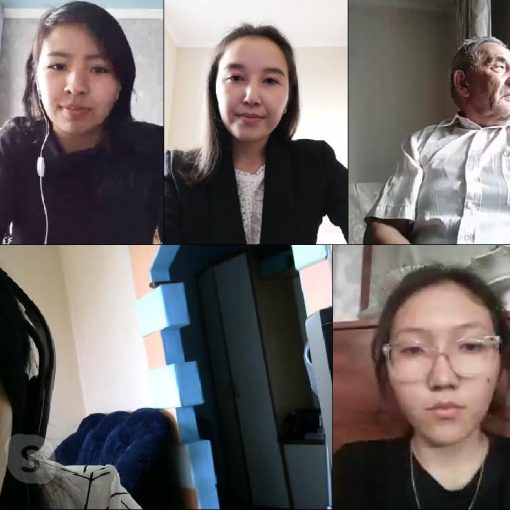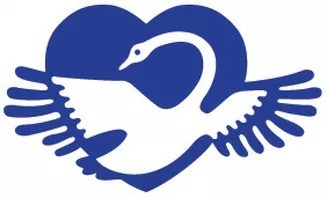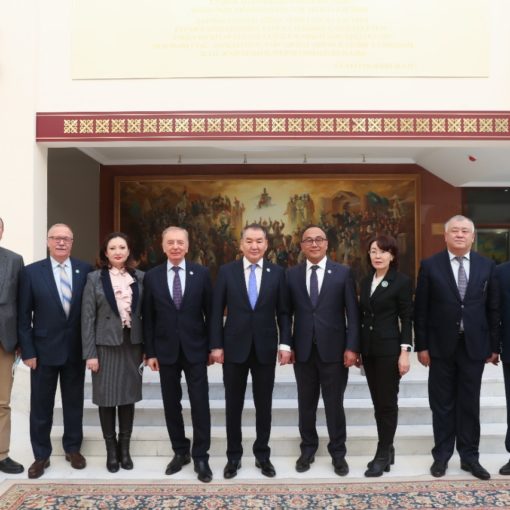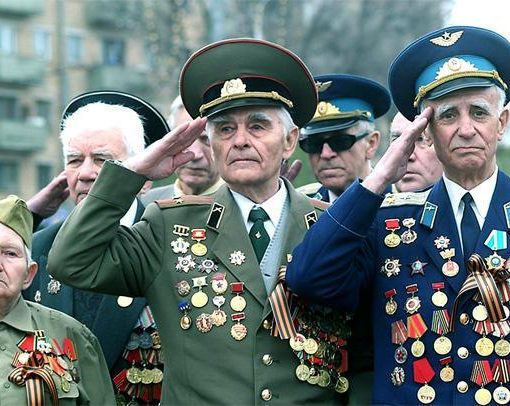B.E. Bekturganova, Chairman of the Board of the Public Association “Association of Sociologists and Political Scientists” of the Republic of Kazakhstan, Doctor of Philosophy, Academician of the Academy of Sociology of the Republic of Kazakhstan, completed her lectures at the scientific-methodological seminar “Methodology of Applied Scientific Research”. (volume 36 hours). The seminar was held for teachers of our Academy.

The content of the seminar:
1. RESEARCH PREPARATION.
1.1. Types of practical research. Targeting for practice. Basic and additional criteria for classification of research types.

1.2. Research program and plan. Formulation and justification of the problem. 1.2. Purpose, object and subject of research. 1.2. Logical analysis of the basic concepts. Formulation of hypotheses. Research Objectives. Definition of the target population. Research work plan, supporting documents and research standards.

1.3 Logical analysis of basic concepts. Logic of analysis of the processes under study. Interpretation of basic concepts. Operational definition of notions.
1.4 Measuring the phenomena and processes under investigation. General principles of measurement. Search for indicators. Types of scales and rules of their drawing.

2. INFORMATION COLLECTION.
2.1. Polling method. Interviews and polling. Toolkit design. Formulation requirements for questions. Formulation of questions. Form of questions. Requirements for the interview procedure. Postal survey. Press poll. Telephone interview.
2.2 Specifics of public opinion poll. What is an opinion. Knowledge and belief as the basis of opinion. From opinion “in general” to public opinion. Dynamics of public opinion. Types of public opinion research.
3.1. The method of observation. The formation and main applications of observation. Features and types of observation method.

3.2. Document analysis method. Documents as source of information. 3.2. Types of documents. 3.2. Method of analysis of documents. Selection of documents for study. Types of analysis of documents.
3.3. Expert evaluation method. Formation of expert group. Forecast.
3.4. Experiment. General characteristic of the method. 3.4. Types of experiment and methods of selection of experimental groups. Planning and logic of the experiment. Linear and parallel experiment. Example of a specific study.
3.5 Measuring social attitudes. General provisions. 3.5. Scale of self-esteem. Scale of ranking. Bogardus scale. Thurston scale.

3.6. Focus group method. Features of the method. Focus group procedure. Requirements for moderator behavior. Requirements for discussion.
4. ANALYSIS, GENERALIZATION AND USE OF RESEARCH RESULTS.
4.1. Preparation of primary information for computer processing. Principles of coding closed questions. Completeness and accuracy of questionnaire filling.
4.2. Generalization and display of research results. Statistical grouping. Distribution rows. Tabulation. Graphs and charts. Measures of the central trend. Index method.

4.3 Interpretation of received data and forecasting of processes under study. General approaches. Interpretation procedure. Detection of interrelation of features. Characterization of prognostic models. Types of forecasting.
4.4 Using the results of applied research in scientific activities. Purpose and objectives, information base and nature, orientation and forms of using the results of applied research. Formulation of the results.
The materials of the seminar can be found in attachments:
AsIP-presentation Download
Research Program-1Download
Research Program-2Download
Article-Bekturganova- Download





